Do you have a question about the MARUTI SUZUKI Automobile and is the answer not in the manual?
Outlines the conditions required to qualify for the warranty.
Specifies the duration of the warranty period.
Details the manufacturer's responsibilities under the warranty.
Lists exclusions and limitations of the warranty policy.
Defines the scope and exclusivity of the written warranty.
Explains how to obtain warranty service.
Outlines the owner's duties for warranty validity.
Disclaims responsibility for indirect or consequential damages.
Clarifies warranty validity upon change of vehicle ownership.
Defines the applicability and duration of the Emission Warranty.
Specifies situations where the emission warranty is void.
Lists specific parts covered under the emission warranty.
Specifies the recommended type of fuel for the vehicle.
Covers vehicle keys, immobilizer system operation, and warnings.
Explains operation of door locks, windows, and child-proof locks.
Details tailgate and trunk lid opening and manual unlatching.
Describes adjustment of interior and outside rearview mirrors.
Guides on adjusting seats, seatbacks, and head restraints.
Covers proper use, inspection, and installation of seat belts and child restraints.
Explains airbag system operation, warnings, and servicing.
Details the functions of the ignition switch positions and reminders.
Explains operation of lights, turn signals, and fog lights.
Covers operation of turn signals, wipers, and washers.
Details windscreen and rear window washer operations.
Explains how to adjust the steering wheel height.
Describes horn operation and remote audio controls.
Provides an overview of the instrument panel and its components.
Explains the meaning and function of various warning and indicator lights.
Details the speedometer, odometer, tachometer, fuel, and temp gauges.
Explains operation of hazard, heated rear window, headlight leveling, and fog light switches.
Describes glove box and information display functions (clock, thermometer).
Introduces the vehicle's heating and air conditioning systems.
Details operation of manual climate control system and its modes.
Explains climate control modes like Bi-level, Heat, Demist, and air intake selection.
Provides instructions for ventilation, heating, cooling, and dehumidifying.
Details the operation of the automatic climate control system.
Explains parking brake operation and checks for pedals.
Covers gear lever operation and fuel filler cap procedures.
Details folding rear seats, sun visor usage, and rear seat safety.
Explains interior light switches, spot lights, accessory sockets, and ashtrays.
Describes assist grips, bonnet release, and cup holders.
Details the use of frame hooks and tyre changing tools.
Covers wheel covers, seat back pockets, and luggage compartment cover.
Describes luggage and trunk compartment lighting.
Explains the removable radio antenna and its care.
Warns about exhaust gas dangers and provides a daily inspection checklist.
Covers engine oil consumption, checks, and engine starting procedures.
Details engine starting for petrol/diesel and manual transmission usage.
Explains gear changing and safe downshifting speed limits.
Covers braking, servo assist, and Anti-Lock Brake System (ABS) functions.
Explains how the Anti-Lock Brake System (ABS) works.
Provides guidelines for initial running-in and catalytic converter care.
Offers tips and practices to improve vehicle fuel economy.
Provides advice for safe driving at high speeds, including aquaplaning.
Offers guidance for driving on hills and slippery or wet roads.
Includes general driving safety tips and tyre precautions.
Explains vehicle weight limits, GVWR, GAWR, and load distribution.
Discusses implications of trailer towing, including brakes, tyres, and mirrors.
Details recreational towing methods and precautions for the vehicle.
Outlines the recommended schedule for regular and periodic vehicle maintenance.
Details maintenance tasks for Engine, Ignition, and Fuel systems.
Covers maintenance for drivetrain, braking, wheels, suspension, and steering systems.
Details maintenance for electrical, body, road test checks, and AC systems.
Covers engine oil and filter specifications, checking, and replacement.
Explains how to check and refill engine oil levels.
Details the procedure for replacing the oil filter and its tightening torque.
Covers gear oil specifications and engine coolant selection and checks.
Details windscreen washer fluid and air cleaner maintenance.
Covers spark plug inspection, gap adjustment, and replacement.
Details fuel filter maintenance and brake fluid checks.
Covers inspection of brake pedal, parking brake, steering play, and clutch pedal.
Details tyre inspection, pressure checks, and rotation procedures.
Explains wheel changing procedure and tyre safety precautions.
Covers battery safety and maintenance, and fuse box locations.
Identifies fuse box locations and explains general bulb replacement.
Details replacement procedures for headlights, turn signals, and other lights.
Explains how to inspect and replace wiper blades.
Provides step-by-step instructions and safety precautions for jacking the vehicle.
Details the correct procedure and safety measures for jump starting the vehicle.
Covers vehicle towing guidelines, methods, and precautions.
Provides steps for engine flooding and overheating issues.
Offers guidance on preventing vehicle corrosion through cleaning and repair.
Explains interior and exterior cleaning methods for the vehicle.
Details exterior washing techniques and the importance of waxing.
Explains how to identify the vehicle using chassis and engine serial numbers.
Lists the vehicle's overall dimensions, wheelbase, and track.
Lists the vehicle's kerb, gross vehicle, and axle weight ratings.
Details engine type, displacement, and electrical component specifications.
Lists specifications for lights, wheels, and suspension components.
Lists steering alignment specifications and approximate fluid capacities.
| Brand | MARUTI SUZUKI |
|---|---|
| Model | Automobile |
| Category | Automobile |
| Language | English |


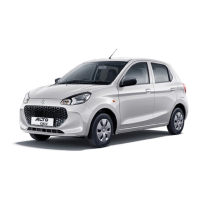
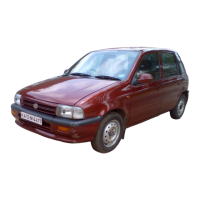
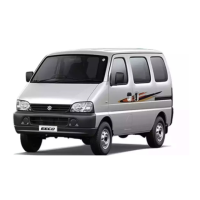




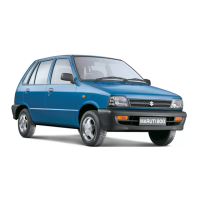

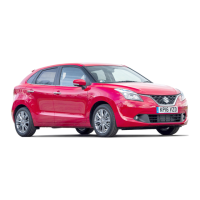
